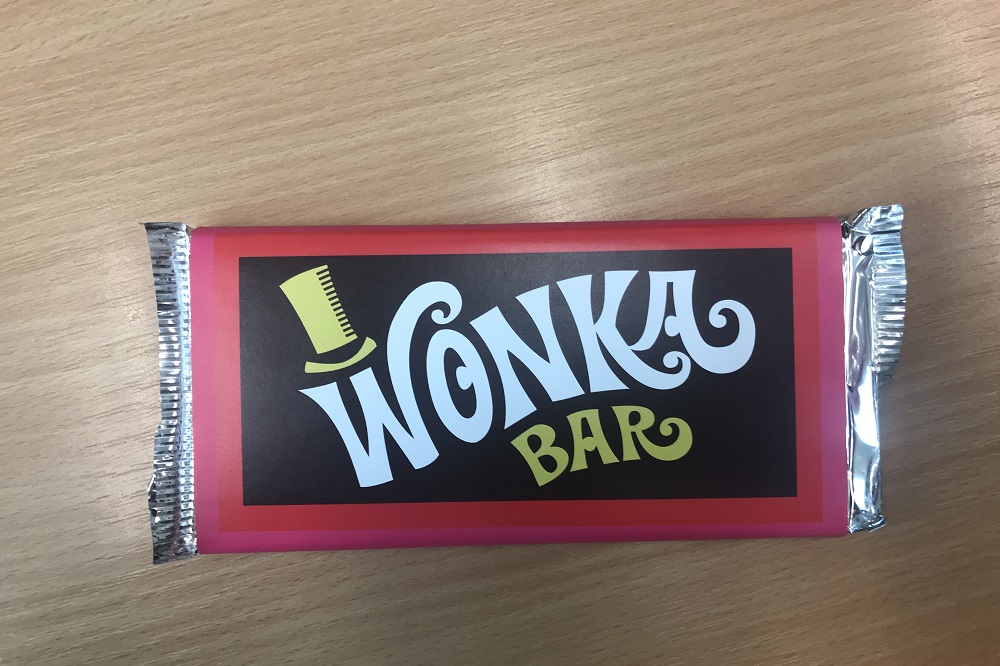Sweet shop owner fined for Wonka chocolate bar scam

A sweet shop owner will have to pay over £10,000 after being prosecuted for selling counterfeit ‘Wonka’ chocolate bars which also did not have the allergen information in the correct format.
Mr Alan Price, trading as Mollies Sweet Shops, pleaded guilty to ten charges under the Trade Marks Act 1994 and the Food Information (Wales) Regulations 2014 in a prosecution led by Powys County Council’s Trading Standards Service.
Llandrindod Wells Magistrates Court heard that the Wonka logo is a registered trademark and it is an offence to apply it to any product without being licensed by the Trade Mark holder.
Mr Price was responsible for the application of the Wonka logo onto the chocolate bar labels, which he then supplied to his sweet shops in Newtown, Ludlow, Telford and Chester.
The court also heard that allergen information on the label was not provided in the correct format, which posed an imminent safety risk to people who had allergies to milk and soya.
A Trading Standards Officer had previously offered advice and guidance to the business on numerous occasions and had given many chances for Mollies to comply with the law.
The officer subsequently discovered that the same product was being offered for sale outside Wales, despite assurances from the business that all Wonka bars had been removed from sale in all Mollies shops.
Mr Price was fined £7,200 for the offences and ordered to pay £3,000 costs and a £190 victim surcharge.
Guidance
Cllr Richard Church, Cabinet Member for a Safer Powys, said: This case demonstrates the value of the work that Trading Standards does. It is their aim to protect members of the public who suffer from allergies, at the same time Trading Standards are protecting brand holders to ensure a wider resilient and healthy economy.
“Despite attempts by Trading Standards to provide advice and guidance to the business owner, this was ignored, which is why this case was brought to court.”
Wonka originally bars featured in the classic Roald Dahl children’s book “Charlie and the Chocolate Factory” and in the subsequent film adaptions.
The fictitious chocolate bars contained a golden ticket that changed the life of Charlie Bucket, bringing him into contact with the eccentric sweet maker Willy Wonka.
Wonka Bars first hit the shelves in 1976, when the Chicago-based manufacturer Breaker Confections launched its version of the bar in the US.
Chocolate giant Nestlé bought the brand in 1988, and it was eventually sold to Ferrero who retain the trademark.
Last year, the UKs Food Standards Agency (FSA) warned shoppers to be on the lookout for counterfeit Wonka Bars which could pose a threat to health.
In a statement it said some counterfeit bars which had been seized were found to contain allergens not listed on the label.
Support our Nation today
For the price of a cup of coffee a month you can help us create an independent, not-for-profit, national news service for the people of Wales, by the people of Wales.





